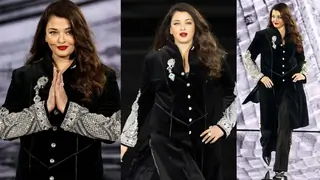Originally posted by: return_to_hades
I don't think the theories necessarily contradict each other.
Survival of the fittest is actually quite a crude simplification of natural selection. Natural selection is a very long term biological process where certain traits disappear while others become stronger depending on the environment.
Let us take bears for example. Their genetics were for black or brown skin. The Grizzly, Black bear and most bear species still retain that color. However, Polar Bears are different. Originally Polar Bears were thought to have dark fur. Albinism was a genetic anomaly. Since white fur served as perfect camouflage allowing the bears to hide in snow and sneak up on prey, eventually the genetic anomaly became the dominant trait. Other traits like temperature regulation also developed. The Polar Bear is the fittest to thrive in the arctic. Albinism was a positive trait in the environment and by natural selection that trait survived in the region. It does not mean that the albino bears actually competed with the darker bears or tried to one up them. There wasn't a competition.
Cooperation and coordination are traits that can be rewarded and developed by natural selection. There are very complex systems of coordination and cooperation that have helped animals thrive and survive.
Ants are one of the greatest example. An ant colony is the result of extreme cooperation between thousands of ants. They have very cooperative societies that build houses and hunt for food. Did you know ants never have a traffic jam? You could have literally thousands of ants going back and forth in lines for food sources and they never end up with a traffic jam. Throw in an obstacle like a rock or something, within seconds they have found a system around it without causing any backup. Their travel system is so perfect that scientists are studying it to see if we can learn from ants to resolve human traffic jams.
yeaah...Ants are a wonder ❤️ WOW...never knew this
A lot of hunting animals hunt in pack. Their hunt is very coordinated. They work in unison to flank herds of prey, drive them to corners and hunt. Similarly, many animals have very coordinated defense systems. Elephants, rhinos, and many animals in danger will form a protective circle around the young and hold a defensive line.
Kropotkin's theory did not survive because it is too narrow. While cooperation and coordination are extremely fundamental to the survival of some species, it is not always the case. It lacked big picture thinking of all the other factors that cause species to survive and thrive.
Like.. cooperation happens on a day-to-day basis, and is somewhat behavioural trait, and then, process of natural selection happens over centuries taking in BROADER aspects of the living creatures' life and struggles?
Darwin's theory survived because it is truer. Natural selection isn't anti cooperation or pro competition. It is neutral. It says nature rewards and selects what is necessary to survive the environment.
alright. i get it.






























